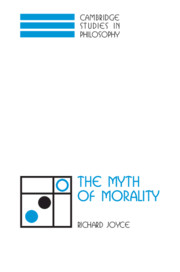5 - Internal and external reasons
Published online by Cambridge University Press: 22 September 2009
Summary
INTERNAL AND EXTERNAL REASONS
Bernard Williams presents a theory of reasons in many respects like that of Smith's theory of normative reasons. The theory is designed to show that the opposition – one that supports non-instrumental reasons – necessarily makes a mistake. The purpose of this chapter is to describe and develop Williams's position, and then to criticize some of the opposition it has faced. I do not pretend that this list of opponents will be exhaustive, but it is hoped that they represent some basic types of anti-instrumentalist argument.
Williams claims that one has a reason to φ if and only if one would be motivated to φ after a process of fully informed correct deliberation. As before, I should prefer to drop the “ … and only if …,” allowing elbow room for other kinds of reason. Suppose Molly has been exposed to ample evidence that φing reliably attains X – so much so that she is quite justified in believing it – but it is actually false (she is not fully informed). Let us say that she deliberates carefully and flawlessly on the matter, and her desire for X survives the process. I see no grounds for resisting the admission that it would be rational for her to φ, that she has a (subjective) reason to φ; and I find the insistence that she does not have a reason to φ (because if she had true beliefs she would desire otherwise) clashes with commonsensical attribution.
- Type
- Chapter
- Information
- The Myth of Morality , pp. 106 - 134Publisher: Cambridge University PressPrint publication year: 2001



